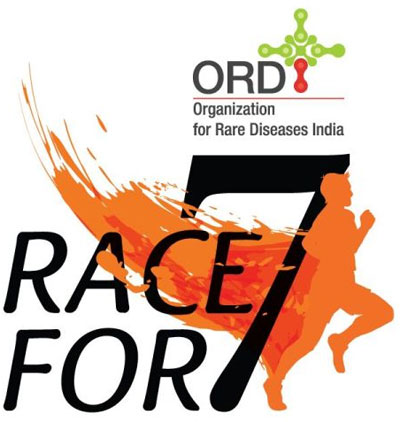KEM Hospital, one of the 11 Centres of Excellence (CoE) for Rare Diseases in India, is facing challenges in fulfilling its mandate due to a lack of designated space and administrative delays. The hospital reportedly requires INR 78 crore ($10.4m) annually, and currently has 73 registered patients. Patients from remote areas struggle to register with the CoE due to a lack of guidance and support, and the absence of an online portal for outpatient department registration exacerbates the situation. The lack of data availability is also a concern for patient advocacy groups.
Mumbai: KEM Hospital, one of the 11 Centres of Excellence (CoE) for Rare Diseases recognised by the ministry of health and family welfare, is facing challenges in fulfilling its mandate. Patient advocacy groups point out that the hospital does not even have a designated space for a CoE, potentially due to delays in internal administrative approvals, and operates out of the paediatric department.
The National Policy for Rare Diseases, implemented on March 30, 2021, aimed to address the needs of rare disease patients across the country. KEM Hospital’s CoE for rare diseases has 73 registered patients, the third-highest patient load in the country, and reportedly requires funds of ₹78 crore per year.
Patients suffering from rare diseases, including those from remote villages, travel long distances to seek assistance at KEM Hospital. Regrettably, they face a lack of guidance and support in registering with the CoE. The absence of an online portal for outpatient department (OPD) registration for rare diseases exacerbates the situation. The majority of these families are both illiterate and financially marginalised, resulting in an arduous process of visiting multiple departments for days on end to complete the registration procedure.
Shital Bhatkar, Mumbai coordinator of the Organisation for Rare Diseases India (ORDI), who lost her seven-year-old son to a rare disease called Storage Disorder, said that other CoEs in the country had a proper department. “In Maharashtra, the CoE, which is in KEM Hospital, is only on paper,” she said. “It would be great if the BMC were to help the CoE for rare diseases and fund the treatment.”
Bhatkar said the emphasis of the CoE should be on diagnosis and transparency of data. “Crowdfunding does not help, as drugs for rare diseases are a lifelong requirement,” she said. “Patients’ families require sponsorship and funds from the government. If patients get treatment, they can lead a normal life. But medicines are so expensive that most families give up.”
Elaborating on the necessity of data, Bhatkar said that data was available in other centres, because of which patient advocacy groups were able to at least fight for government funding or approach pharmaceutical companies for sponsorships. “We need data on the number of patients, which disease they
The lack of a proper centre in KEM Hospital was also highlighted in a recently held workshop on National Policy For Rare Diseases which was held by patient advocacy groups and attended by ministry of health and family welfare officials and those in charge of some CoEs for rare diseases in New Delhi on June 13.
Manjit Singh, president of the Lysosomal Storage Disorders Support Society (LSDSS), who was part of the workshop, said the 11 CoEs were set up almost two years ago with ₹5 crore per centre being allocated to develop infrastructure for the centres as well as diagnosis. “We understand that administrative work takes time but the KEM CoE space has been long overdue,” he said.
Singh said the June workshop was held to sensitise the government to rare diseases and the loopholes in the rare disease policy. “For instance, the government has not specifically provided a funding mechanism in the policy except for a website where patients’ details are uploaded by the doctor and which functions as a crowdfunding platform,” he said. “As of now, 594 patients have been registered, but in the last 18 months not even ₹5 lakh has been deposited. The requirement is close to ₹750 crore. The platform is a failure. Also, the government had said it would give ₹50 lakh per child as a one-time treatment grant but for many, the treatment is lifelong and ₹50 lakh does not last beyond three to six months.”
have, how much money they need so that we can help them,” she said. “KEM Hospital does not give this data.”
Recounting her own experience, Bhatkar said she spent ₹5 lakh on only one medicine, an imported one, for her son. “He had to take half a capsule twice a day,” she said. “The medicine, which was meant to be taken lifelong, lasted for three months. We could not continue with the treatment for lack of funds.”
Anagha Afreddy, a Dadar resident whose 14-year-old son is suffering from MPS-2, said they were lucky that a company came forward to fund their child’s treatment. “The cost of the medicine is a major hindrance,” she said. “Neil has been sponsored for a lifetime by the drug company. He has to take three vials per week intravenously, and each bottle costs ₹1.5 lakh. Even if you are rich, it is difficult to sustain the treatment. As of now, it is ₹4.5 lakh per week for my son. As he grows older, the medicine requirement will also go up.”
Anagha said that apart from the treatment, Neil had to undergo six surgeries, which was not accounted for in rare diseases treatment. “The CoE needs to look into all these factors,” she said. “There’s also the educational requirements of kids with rare diseases, counselling for parents from rural India who might be illiterate and so on. The CoE needs to have a holistic outlook.”
Meanwhile, a BMC health official said a plan had been submitted to develop a CoE of rare diseases in KEM Hospital. “There is already a committee for rare diseases,” he said. “A plan has now been submitted for funding these children’s treatment.”
Link for original article: https://www.hindustantimes.com/cities/mumbai-news/kem-hospital-s-rare-diseases-centre-crippled-by-lack-of-infrastructure-101687115261630.html



